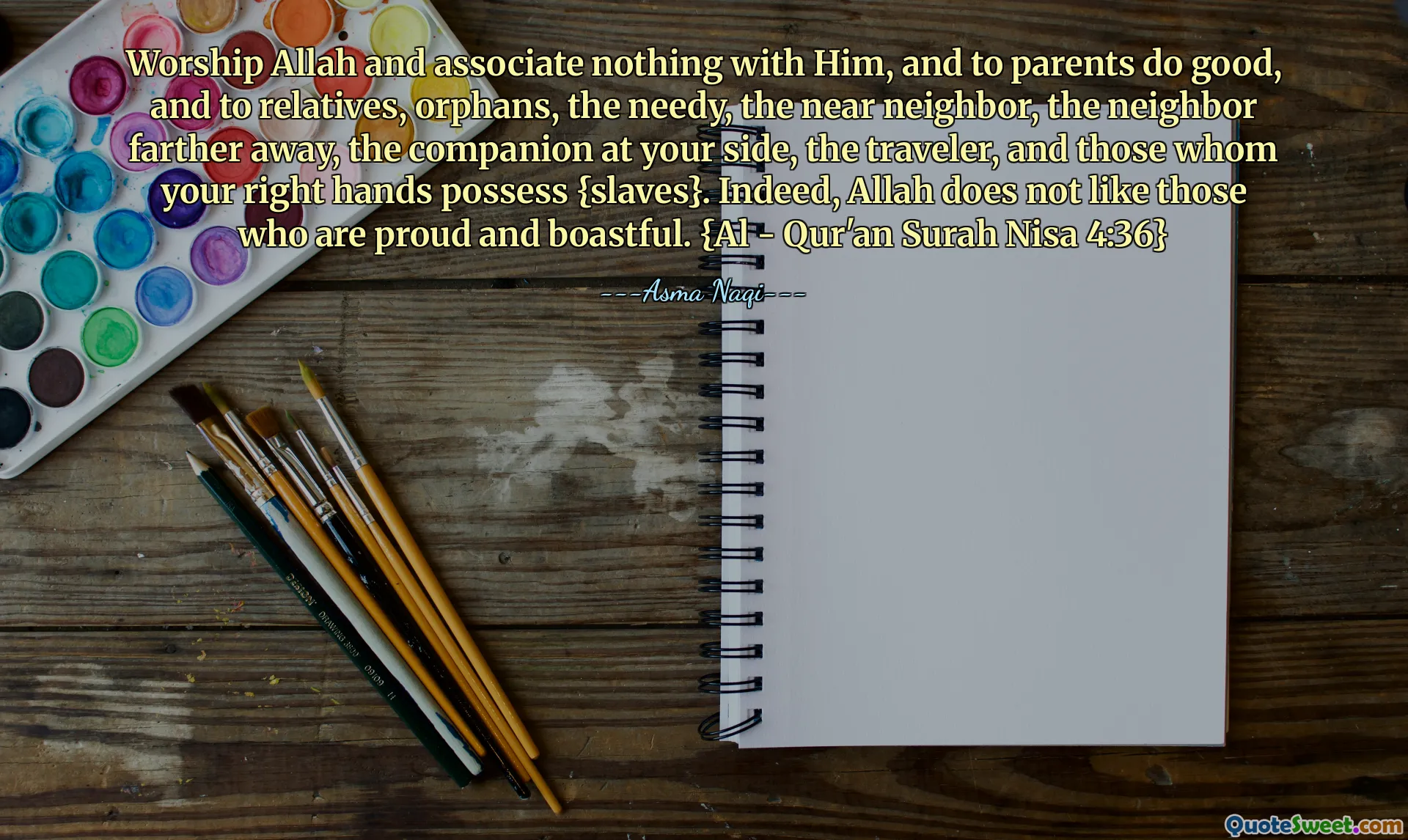
Worship Allah and associate nothing with Him, and to parents do good, and to relatives, orphans, the needy, the near neighbor, the neighbor farther away, the companion at your side, the traveler, and those whom your right hands possess {slaves}. Indeed, Allah does not like those who are proud and boastful. {Al - Qur'an Surah Nisa 4:36}
This verse from the Qur'an touches on profound principles that guide human conduct and spirituality. It begins by emphasizing the fundamental concept of monotheism in Islam: worship Allah alone and do not associate any partners with Him. This foundational belief nurtures sincerity and humility in the worshiper's heart, establishing a direct relationship with the Divine without distractions or intermediaries.
The directive to 'do good' to a broad spectrum of people—from parents and relatives to orphans, the needy, neighbors, companions, travelers, and even slaves—illustrates the tremendous importance of kindness, social responsibility, and inclusivity. It highlights that good conduct is not limited to one's immediate circle but extends to society at large, regardless of how close or distant these individuals may be. Such compassion creates a sense of community that transcends the barriers of kinship, social status, or circumstance.
Interestingly, the inclusion of 'those whom your right hands possess' reflects the historical context of the time, reminding us to consider justice and dignity for all, especially for dependents in vulnerable positions. The universal theme here is empathy and balanced conduct toward everyone.
Finally, the verse concludes by warning against pride and boastfulness, traits that can corrupt the spirit and damage relationships. This admonition points to humility as an essential virtue for anyone aspiring to live a meaningful and righteous life.
In summary, this verse encapsulates a holistic approach to worship and social ethics: an unshakable commitment to God coupled with compassionate, humble treatment of fellow human beings. It calls for an integrated life where devotion and good character go hand in hand, fostering peace, justice, and humility in both personal and communal spheres.
---Asma Naqi---







